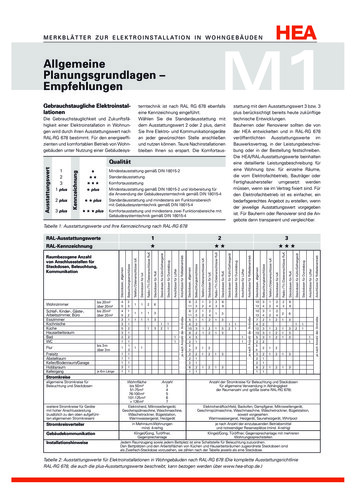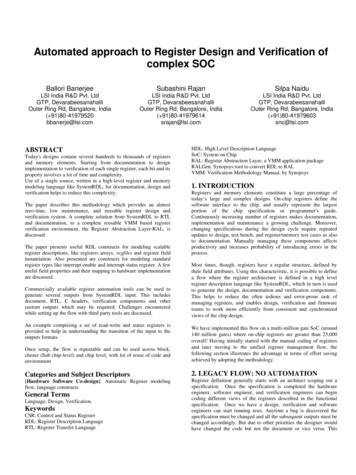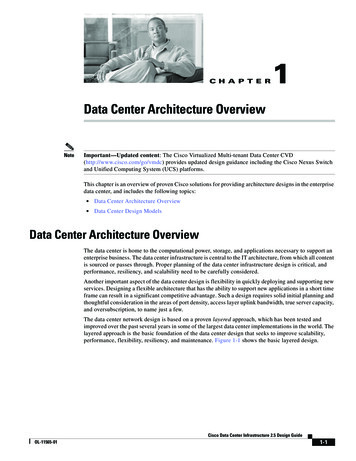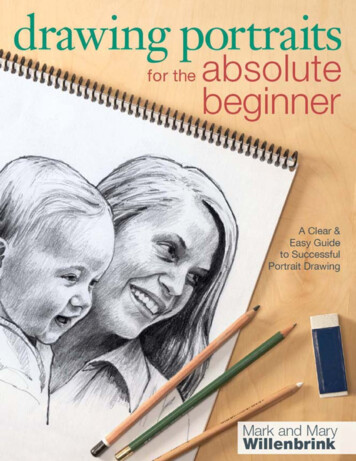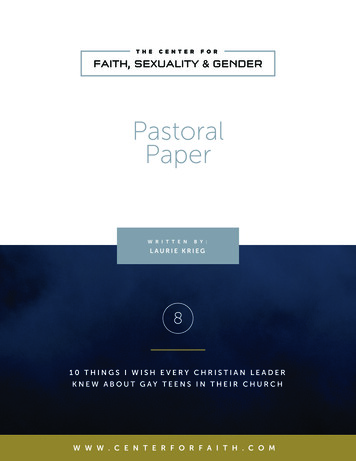
Transcription
PastoralPaperW R I T T E NB Y :LAURIE KRIEG810 THINGS I WISH EVERY CHRISTIAN LEADERKNEW ABOUT GAY TEENS IN THEIR CHURCHW W W . C E N T E R F O R F A I T H . C O M
PA S TO R A LPA P ER8IntroductionThose gay teens in your church? I was one ofthem. I didn’t really know it yet—I didn’t identifyas gay—but I was attracted to women. I felt anincreasing intrigue towards them, while boyswere kind of gross. I had five brothers (andseven sisters), so I grew up fighting with the boys,playing GI Joes with the boys, longing to beincluded with the boys.I dated guys a bit. One of my boyfriends seemedlike the male version of me: he was the otheryouth group superstar. When we secretly caughteach other’s eye in the prayer circle, we silentlyagreed dating the other superstar made sense.That was an interesting few months.Nobody suspected me. I hardly suspected myself.Whenever I felt the draw towards women, Isquashed it down. That’s a sin. Not just a sin, butthe worst-worst sin, I believed.When I share my testimony, this is usually the partwhere I fast-forward to my secret same-sexrelationship in college. I was attending a Christianuniversity, facilitating small groups, and leadingworship at the same church where my dad was apastor. I wished I could tell someone, but I didn’tknow who I could trust. Every time I heard churchpeople say, “Those gay people,” their voicesdripping with vitriol, or every time they elbowedme after making a gay joke, I threw up an invisiblewall of distrust between us. I will never be openwith them, I promised myself. Staying in thechurch is harder than leaving.or come out as a lesbian atheist. I talk about howa wise person taught me these “solutions” werenot the answers I was searching for. There was athird way I didn’t know was possible, and it was tosink my whole self into the truth of the gospel:“You are broken. You are beloved. But so iseveryone. You can live in the tension with hope.”1Today, though, I do not want to fast-forwardthrough high school. Instead, I want to pushpause right at the moment I was first wrestlingwith my sexuality, and ask High School Laurie:What do you wish your church knew about you?What do you wish they would do for you?Based on her responses, and the desires of manypresent-day young adults I have mentored, I offeryou this paper.2It does not speak for everyLGBTQ person who walks boldly or secretlythrough your church doors, but I hope it speaksfor some. Here are ten things I wish my churchhad known about me:I often continue the story to a scene post-collegewhere I wrestled between two choices: kill myselfP G .1
T H EC E N T E RF O RFA I T H,S E XUA L I T Y1. I Have No Idea Who I Am.Sexuality aside, I hardly knew who I was in highschool. Some of this was because the humanbrain is not fully developed until we are 25 yearsold,3but some of it was because I was achameleon.I am not the first or last chameleon to walkthrough high school.4Before my senior year, I played many roles at thefive different schools I attended: mean girl, flirtygirl, smart girl, youth group girl, and mean girlagain. It was all an identity based on performanceand others’ perceptions of me.Then I had a real, Holy Spirit encounter on asenior backpacking trip with our youth group.God reached below the layers of hiding, pain,cruelty, questioning, self-hatred, and genuine loveof God to say, “I see you, Laurie. I know the realyou, and I love you.”&G E N D E Rwas probably “e-props” on my Xanga site, but Idigress.) I wish I knew how to listen to God, tofast, to celebrate, to meditate on the word, and tolet him into the secret places of my heart.Had I known—truly known—the foundationaltruth of the gospel that says I am more sinful thanI believe and more loved than I can imagine, whenI was ready to process some of my pain, I couldhave done so using the gospel as a template: I ambroken. “This is my type of brokenness.” I ambeloved. “This type of brokenness doesn’t makeme less loved.”If I had known an identity based not on mygoodness or failings but on God’s grace, I mighthave been spared the hours I spent begging a GodI thought hated me: “Please, squash me and startover. Just kill me. I am a failure.”I wasn’t a failure. I was loved. But myachievement/works-based identity was failing me.3. I Am a Prodigal, Too.I wish I had been taught back then how to get toknow the real me. God was calling her forth, but Ididn’t know how to answer him. I didn’t knowwhat tools to use to bring the real me before areal God in a real world.2. I Need a Gospel-Centered Identity.I didn’t need self-help books; I needed an identitythat was unwavering. The only unchangeableidentity out there is found in the God of the Bible.I needed to learn how to read the Bible and let itread me. I needed to learn to express my painthrough lament like the Psalmists. I needed tolearn how the gospel fuels the joy that equips meto die a thousand deaths every day, and how thatsame gospel wakens me with more love than athousand Instagram likes. (Back then, of course, itP G .2Because I was such a good kid, people assumednothing painful or messy could be hiding behindmy smiling face and shiny blonde hair.It’s easy to forget that the older brother is just asmuch a prodigal as the younger.5We say it insermons, but let’s be honest: The older brotherdoesn’t cause as many problems. The parent orpastor can take a mental break knowing thehardworking firstborn is getting stuff done. Wedon’t have to have a sit-down, “How’s your heart?”chat with them because their heart seems good.It’s that darn pig-reeking younger brother who isthe problem child—they are messing with ourability to make this family or church operatenicely.
PA S TO R A LWe need to have those heart-to-heart talks withthe good kids and the bad kids alike. We need torecognize that a well-behaved faith is not alwaysa sign of a healthy heart; sometimes, it’s the markof a heart running from a terrifying reality within.Some parents of LGBTQ-identifying orquestioning teens are incredibly frustrated,shocked because their once-“good” kid issuddenly a prodigal. They feel as if their child has“turned” on them. These parents forget that weare all prodigals—gay, straight, genderqueer,valedictorians, New York Times bestsellers, oldersisters, or pig-slopping younger brothers.4. I Need Room To Be Messy.“Give your child space to be messy,” my husband,Matt, a licensed counselor, often says to parents.Messy?! Messy! How about switch them back tothe good kid I had yesterday! I see the parents’faces twitch. “This is not who they are!” Andmaybe they even say to their child, “This is notwho you are!”What parents and pastors and church leadersoften don’t realize is that statements like “This isnot who you are” put pressure on a child to makea premature decision about who they are andperhaps even about how they are going to live.They may have already come out as gay, butparents often don’t hear the secret question markat the end of the sentence: “I am gay ?” To say,“No, you’re not,” pressures the teenager to thinkof this question as a simple binary with only twopossible answers.Parents cannot contradict attraction. They can layout for their child a biblical plan for what to dowith same-sex attraction, but they cannot simplysay “No” to their child any more than they couldPA P ER8tell their straight child not to feel attraction to theopposite sex.The same-sex attracted child may be wrestlingprimarily with what to do about their attractions.(Do I want to be a celibate gay Christian? Asame-sex attracted Christian? Someone who isopen to dating the opposite sex?) Statements like,“No, you’re not this person” (which the childinterprets as, “No, you’re not attracted to thesame sex”), will isolate the child from parents atthe very moment parental support is mostimportant. That isolation can become a void, aGrand Canyon of misunderstanding. The childmay then choose an easier emotion like anger tocover their pain, and double down: “Yes, I am thisperson, and I’m going to go live it out right now,”or turn their anger inward towards suicidalideation and self-harm.6We need to let our teens have room to be messywhile we instill a gospel-centered identity—nomatter how they decide to identify during andafter their season of wrestling.5. If I Come Out To You, Here Is How You CanRespond: Thank the child—sincerely. “Thank you somuch for trusting me with what you shared.That must have been really difficult to do.” Reaffirm your care and love. “I don’t see you any differently. I love you the same as I did fiveminutes ago.” Don’t say, “I thought so,” or even, “I neverguessed it.” It makes the child feel like they areeither a walking stereotype or a minority of aminority (by a “minority of a minority,” I meanthey may think, “I don’t look gay, but I am gay. IP G .3
T H EC E N T E RF O RFA I T H,S E XUA L I T Y Ask if it’s okay for you to ask some questions.“Can I ask you more about your experience?Feel free to not answer anything you don’twant to.” Ask questions because you are genuinelycurious. “I really would love to know, what hasit been like for you wrestling through all ofthis?” Ask how they identify. “Would you mind tellingme what words you use to describe yourself?Where are you at in this process? How wouldyou like to be addressed?” If you’re in a panic about what to say, restatewhat they just said. “It sounds like you aresaying ” Listen for feeling words. “It soundslike it has been really painful to talk with yourold friends at school.” This is one way ofhelping them know that they are heard. Ask what their support system is like. “Withwhom have you shared? What has that beenlike for you?” Ask the child how they feel about themselves.You’re listening for signs of self-hatred andpotential self-harm. Safety is the highestpriority based on statistics of LGBTQ teensuicide and harm.7“After all this, how do youfeel about yourself?” (Get help if it seems theyare a danger to themselves or others). Ask the child how you can support them. “I’dlove to come alongside you any way I can.How can I support you in this season?” (Thendo it. Keep your word). Reaffirm your love and care. “Just to reiterate, Ilove you so much, and I am with you.”P G .4&G E N D E R Hug them (but ask first). “Would it be okay if Ihugged you?”6. Know That In Places Of Pain, You Can SpeakJesus To Me.When I was in a secret same-sex relationship, Iremember staring at certain people and wishingthey would ask me how my relationship wasgoing. Tone mattered. Words mattered. Trustbetween me and the inquirer mattered. Ifsomeone I hardly knew had asked me directly andrudely, “Why are you doing that!? Don’t you knowit’s sin? That’s not who you are,” I would haveanswered with a giant wall: “It’s fine! It’s great!You just hate who I am!” But if someone hadcome alongside me with genuine curiosity, Icould have opened up about secret pain inside.In the end, this is what happened to me. “It’s sohard,” I wept to my pastor-father. Instead ofrebuking my same-sex behavior, he grieved withme and pierced my heart with the love of Christ.It opened up my heart to my dad whilesimultaneously showing me Jesus’slove—something I felt for only seconds per weekin that season.In the compassionate counseling ministry I direct,we see such an infusion of hope occur inside ofyoung clients with whom we meet. They comeprepared to lob verbal grenades at us, to reject usbefore we reject them, but we startle them withempathy. “You want to talk about it? You want totalk about the breakup? How’s it going with her?”When we courageously, tenderly engage mess(even sin-laden mess), we begin to hear the truthbehind the walls: “I hate myself. I hate my life. Iactually don’t know who I am. Is there somethingbetter than this?”
PA S TO R A LPA P ER8Right there is where Jesus offers living water.8Rightthere is where the gospel is preached: We see you.We love you. We have experienced a betterway—not of straightness, but of walking alongsideone another through sexual brokenness, looking toJesus as all of our hope and wholeness.(Heb. 12:2), “put off your old self” (Eph. 4:22), or “putto death whatever belongs to your earthly nature”(Col. 3:5).10We slide into sinfulness. We do not slideinto holiness. We need to be taught what isholy—not only by our youth pastors, but by oursenior pastors.7. I Still Need To Hear Wisdom Concerning ABiblical Theology Of Sexuality.A lead pastor friend of mine, Pastor Marvin Williamsof Trinity Church in East Lansing, Michigan, isunafraid to step into these tough sermons. He toldme his reasons why in a recent conversation: “If apastor is unwilling to speak what is true, I wouldquestion their love for their congregation, and Iwould question their calling. If you love someone,you will say what is true. If you are called to speak,you will be obedient and do it.”In my mess, in my gospel-identity formation, Ineeded to know what the church believed aboutsexuality. I was not smart enough to figure out thetheology piece on my own, and I needed wise,tender, courageous guidance to teach me.Otherwise, I was going to pick the easiest theology Icould find and go with it.One of my friends, Pastor Johnny McKenna ofEngedi Church in Holland, MI, has been making theentire month of February “Sex Month” for his juniorand senior high youth groups every other year fornearly a decade. “We believe that it is important toaddress sex from the stage for a month because thestudents are making decisions about sexuality everysingle day,” Johnny said. He’s seen incredible resultsfrom taking four weeks to talk about pornography,heterosexual brokenness, same-sex sexualbrokenness, and God’s design for marriage. “Beingopen and honest about sex has led to studentssharing past pain and regret, current issues andstruggles, and future fears,” he said. “Students feelsafe to share anything, knowing it’s okay to talkabout sex in the church.”9Johnny is talking andlistening with empathy, compassion, and truthabout sexuality, and he is seeing it facilitatecommunity.But he is teaching. As broken humans our default isentropy. Our default is not to “run the race” (Heb.12:1), “fight the good fight” (2 Tim. 4:7), “fix our eyes”Love me and people like me enough topreach—with empathy and compassion—the truthabout sexuality.8. I Need Protection.When you speak about same-sex sexual ethics, youare speaking to a highly vulnerable population.LGBTQ teens are 2 to 4 times more likely to attemptsuicide than non-sexual-minority teens, and are 4 to8 times more likely to attempt suicide in highlyrejecting families.11 This is why I urge you to speaktruth only alongside two very gentle words:empathy and compassion.When I think of empathy, I envision Jesus’s ability tosit next to us saying, “I get it. I’ve been there.”Because he has. His Spirit walks with us throughevery joy and pain, and he empathizes withtemptation and grief from his tenure on earth (Heb.4:15, Is. 53:3). Even if a pastor cannot empathizedirectly with same-sex attraction or genderdysphoria, they can unquestionably empathize withwrestling with broken sexuality.P G .5
T H EC E N T E RF O RFA I T H,S E XUA L I T Y&G E N D E RCompassion, on the other hand, is looking at asituation and acknowledging, “I can neverunderstand your pain enough. I have not walked inyour shoes, but I see the miles they have trudgedthrough the muck.” Straight pastors engaging thisconversation will never be able to empathizecompletely. Though we all experience sexualbrokenness, there are unique challenges sexualminorities face. This is where compassion comes in.A pastor must speak from a place of empathy (“I canunderstand sexual brokenness”), but also from aplace of compassion (“I see your specificbrokenness, and I can never ‘get it’ enough”).Lastly, stop saying the phrase, “Love the sinner, hatethe sin.” This phrase is meaningless to an LGBTQperson who affirms same-sex sexual expression.There is no beginning and end to their being gay. Itis infused in their identity, and so they simply hearyou saying, “I hate your whole person.” Like Jesusdoes with all of us, begin with the person as theyare, where they are, and trust God to work out theirsexuality in his timing (see how Jesus interacts withthe woman at the well in John 4:4-26 for anexample of this). Focus on instilling agospel-centered identity, speak what is true withtenderness, and let Jesus sanctify them.When pastors take this heart posture of empathyand compassion, speaking out in specific protectionfor vulnerable populations from the main stage, itcould sound something like this: “Everyone in thisroom is loved uniquely and individually. We want tocare well for all of you. Your physical, emotional,and spiritual safety is our top priority. We do nottolerate bullying, unkindness, or rudeness towardsanyone based on race, gender, religion, or sexualorientation. If we hear about it or see it happeningonline or in person, we will take it very seriously.”9. I Need A Mentor (Or Five).One more specific way to protect me and peoplelike me is to seek to remove unintentionalmarginalization through offensive language. Insteadof saying “gay lifestyle,” say “someone who isengaging in same-sex behavior.” (What is a gaylifestyle? What is a straight lifestyle?) Instead ofsaying “homosexuals,” say “LGBTQ people.”Completely remove the air quotes around thewords gay and gay marriage, because those airquotes create an unnecessary divide betweenLGBTQ people and straight people. “Those peoplethink it’s marriage, but it’s not,” the quotes saydisdainfully. You can believe same-sex marriage isn’tmarriage as defined by God without using airquotes.P G .6Chances were high that I would end up leaving thechurch completely. Chances are even higher forkids in youth group today—no matter theirorientation. 40-50 percent of kids connected to ayouth group in high school will drop out incollege.12 59 percent of Millennials have stoppedattending church completely.13What’s the solution? A huge role ismentorship—specifically, a 5:1 ratio of adult,intergenerational mentors to kids.14According tolongitudinal research from the Fuller Youth Institute,“More than any single program or event, kids werefar more likely to feel like a significant part of theirlocal churches when adults made the effort to getto know them.” They recommend using the 5:1model, which means there are five significant adultrelationships per child.That may sound like too many people. As I reflecton my own journey and watch the students withwhom I work, however, I suspect that young peopleare far more likely to experience increased support,less shame, and a submission of brokenness to theLordship of Christ when they see how truthembodies itself in people. They watch their
PA S TO R A LPA P ER8P G .7mentors walk the hard, narrow road of followingJesus. As they broaden their support structure byopening up to more mentors and friends, they seethe gospel lived out in others. Perhaps there issomething to living a broken/beloved life, theybegin to realize. Perhaps I don’t have to betemptation-free. Perhaps I only need to be on thesanctification journey towards wholeness andholiness just like my mentor(s).10. Remove Heteronormativity (The AssumptionThat Everyone Is Only Attracted To The OppositeSex) Whenever Possible.You may have heard and perhaps said, “Blue andpink make purple. Don’t make purple.” It is alighthearted, well-intentioned way to tell kids notto make sexual choices with the opposite sex atevents. But what if you’re not into the oppositesex? (Or what if you don’t identify as the genderyou were assigned at birth?) This becomes anunintentionally shaming and ineffectivestatement for the LGBTQ kid going on a weekendtrip with church.Don’t assume every young woman is attracted toguys, and every guy is attracted to young women.Practically, this means making subtle shifts in theways we talk about sex and attraction. “Guys, Iknow you want to hang with the girls (winkwink) ” becomes, “Okay, I know you all want tochat ” Rooming may need to be reconfigured atovernight events to ensure everyone feelscomfortable (this is a big conversation that mustbe handled delicately). Additionally, rethinkinggender stereotyping at events would be kind tothe silent LGBTQ kid who often feels incredibly“other.” Perhaps even once per year the guys’ dayout could include painting pottery along withpaintballing. The young women’s day couldinclude grilling meat as well as a day of pedicures.
T H EC E N T E RF O RFA I T H,S E XUA L I T YConclusionYou’re not going to get this right every time. Ifyou haven’t done it already, you are going to failyour LGBTQ kids—and your straight kids—manytimes. This is why, when I speak publicly abouthow to be a “safe” person for LGBTQ kids, I beginby talking about humility. Humility is the mostincredible, approachable, attractive characteristicof Jesus, and it can transform our relationshipswith each other. “Have this mind amongyourselves, which is yours in Christ Jesus, who,though he was in the form of God, did not countequality with God a thing to be grasped, butemptied himself, by taking the form of a servant”(Phil. 2:5-7, ESV).When stepping into any conversation concerningthe above 10 ideas with an LGBTQ student, itwould be wise to begin with, “Hey, I want tounderstand and to care well for you. However, Idon’t know what I don’t know. If I offend you, willyou please tell me? I don’t want to hurt you.”Humility draws hearts together no matter ourdifferences in theology or life experience.Humility is unquestionably the reason I stayed inthe church even while I lived a secret double life.The churches I attended and the people in themwere imperfect, but they were humble. Theywanted to grow and to learn. It gave me hopethat perhaps one day I would be free to share allof my struggles with them, knowing that theywould learn to receive me and my story asanother amazing but ordinary example of thegospel:I am more sinful than I believe, and I am moreloved than I can imagine. And so are you.P G .8&G E N D E R
PA S TO R A LPA P ER8Notes1. My definition of the gospel is borrowed and adapted from10. All five passages are taken from the NIV translation.Tim Killer. His exact quote: “The gospel says you are moresinful and flawed than you ever dared believe, but more11. Bill Henson, Guiding Families of LGBT Loved Ones (Leadaccepted and loved than you ever dared hope.” SeeThem Home Ministries, 2016), 4.http://www.timothykeller.com/intro/ for more.12. Powell, Kara, et al. “The Church Sticking Together.”2. I am the executive director of Hole in My HeartStickyFaith.org, Immerse Journal, 11 Oct. 2011,Ministries—a compassionate counseling ministry for -together.wrestling with issues related to sexuality. The goal of HIMH isnot orientation change but rather to create safe spaces for13. “Americans Divided on the Importance of Church.” Barnaand around people wrestling with sexuality. HIMH MinistriesResearch, Barna Group, 24 Mar. 2014,has the unique privilege of walking alongside LGBTQ -the-imporpeople wrestling with pornography addiction, adult survivorstance-of-church/.of childhood sexual abuse, and their families and friends.14. Eaton, Sam. “59 Percent of Millennials Raised in a Church3. Aamodt, Sandra and Tony Cox. “Brain Maturity ExtendsHave Dropped Out-And They're Trying to Tell Us Why.”Well Beyond Teen Years.” NPR, 10 Oct. 2011,Faithit, 22 Mar. 2017, /templates/story/story.php?storyId 141164708.-church-sam-eaton/.4. Choi, Charles Q. “How Teenagers Find Themselves.”Scientific American, Nature America Inc., 1 Feb. ers-find-themselves/.5. See Luke 15:11-32.6. “Facts about Suicide.” The Trevor -suicide.7. For instance, relative to their straight peers, LGBTQ teensare 2-4 times more likely to commit suicide while living withaccepting families and 4-8 times more likely while living withfamilies that are not accepting (Bill Henson, Guiding Familiesof LGBT Loved Ones [Lead Them Home Ministries, 2016],4).8. See John 4:4-11.9. Email conversation with Johnny McKenna, 24 Aug. 2017.P G .9
About the AuthorOur collaboration is a growing team of Christian leaders, pastors, scholars, and LGBT persons to serve asadvisors, writers, speakers, researchers, and board members. Learn more about our collaborative team atwww.centerforfaith.com/leadership.Laurie KriegAdvisor/ Contributor/Board MemberThe Center for Faith,Sexuality, & GenderLaurie Krieg is the Founder and Executive Director ofHole in my Heart Ministries, a compassionatecounseling ministry for those wrestling with issuesrelated to sexuality. Laurie and her husband, Matt, alicensed counselor, speak, write, and counsel out of aheart to love people through the lens of the gospel.Laurie daily submits her same-sex attractions to thelordship of Christ, and comes alive sharing how andwhy she does that. Laurie is the chairperson of CaringWell, a conference that equips people with agospel-centered approach to journeying with LGBT neighbors for a lifetime. Visit her blog and learn abouttheir counseling ministry at himhministries.com.The Center for Faith, Sexuality & Gender is a collaboration of Christian pastors, leaders andtheologians who aspire to be the Church's most trusted source of theologically sound teachingand practical guidance on questions related to sexuality and gender.Download more resources at:WWW.CENTERFORFAITH.COM
I dated guys a bit. One of my boyfriends seemed like the male version of me: he was the other youth group superstar. When we secretly caught each otherÕs eye in the prayer circle, we silently agreed dating the other superstar made sense. That was an interesting fe
